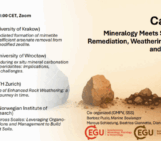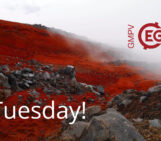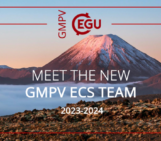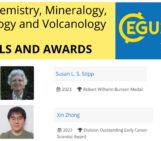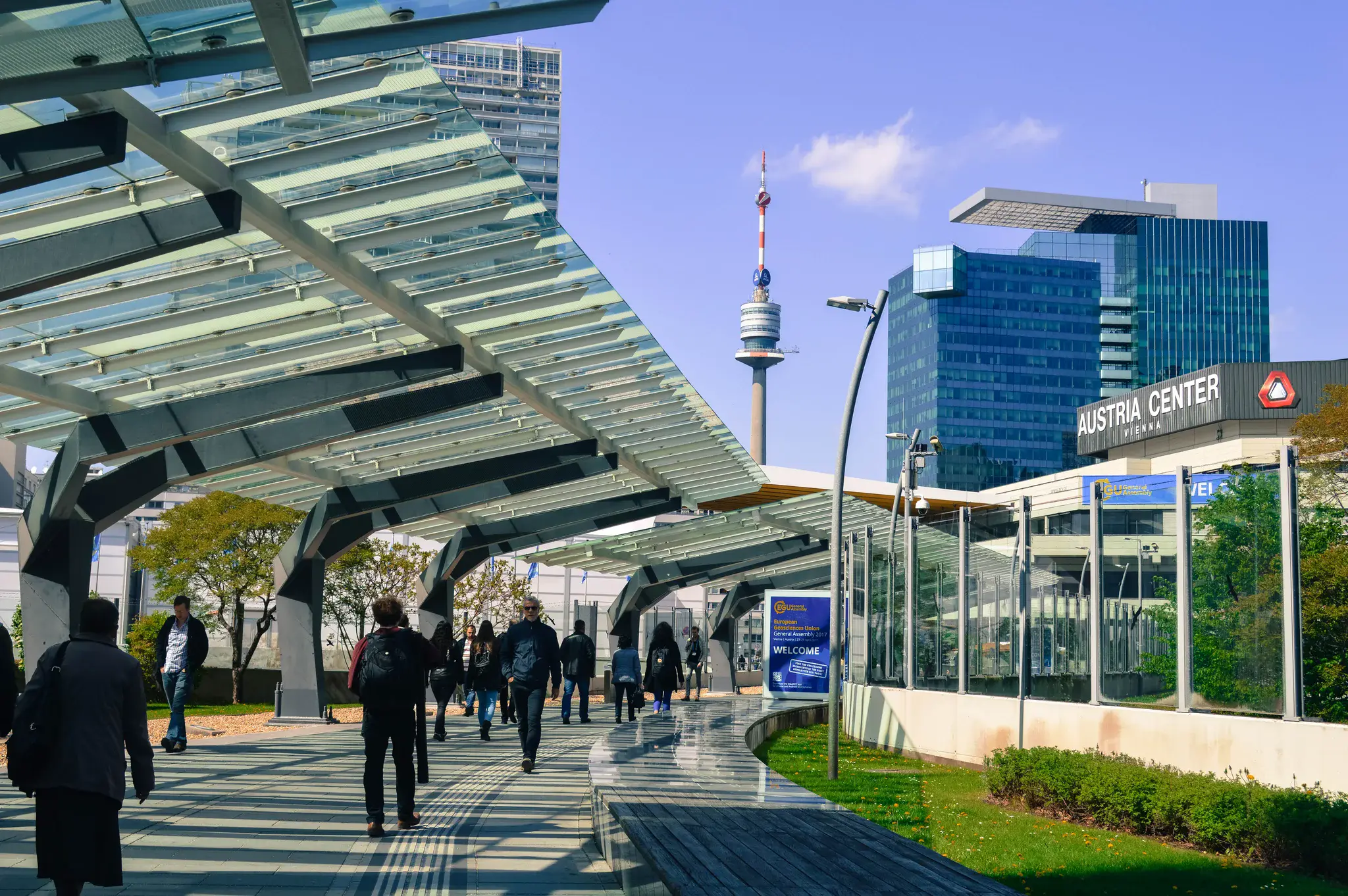
Welcome to EGU! ( from imaggeo.egu.eu)
CONGRATULATIONS! Your abstract has been successfully accepted to your desired session. Now what? Panic! Just kidding—you need to create high-quality conference materials (a presentation or poster) and deliver a memorable talk. Luckily, we’re here to help!
Creating conference materials can be daunting. With limited time, you want to showcase the importance of your research (Yes, it’s awesome and important—don’t ever undersell it!) while ensuring your audience walks away with a clear take-home message. It’s easy to get lost in the details, second-guessing what to emphasize and what to omit. While there’s a lot of advice online about presenting, much of it may not apply specifically to EGU. Did you know that EGU provides guidelines and rules for oral, PICO, and poster presentations? Be sure to have a look before diving into your presentation. Still wondering what to include and how to condense months or years of work into a single poster or an 8-minute talk? We surveyed our blog-editor team, who are experienced in attending both poster and oral sessions at EGU, to get their top advice and here is what they had to say.
1. TAKE YOUR AUDIENCE ON A JOURNEY!
Your presentation isn’t just about dumping information—it’s about telling a story through your research. Start with a clear introduction, set the aims, and guide your audience through the problem you’re solving, your methods, and your key findings. Make sure they understand why your research matters.
GMPV’s current representative, Simona, advises: “Ditch the content slide. You only have 8 minutes, and you should dive straight into the motivations behind your research.”
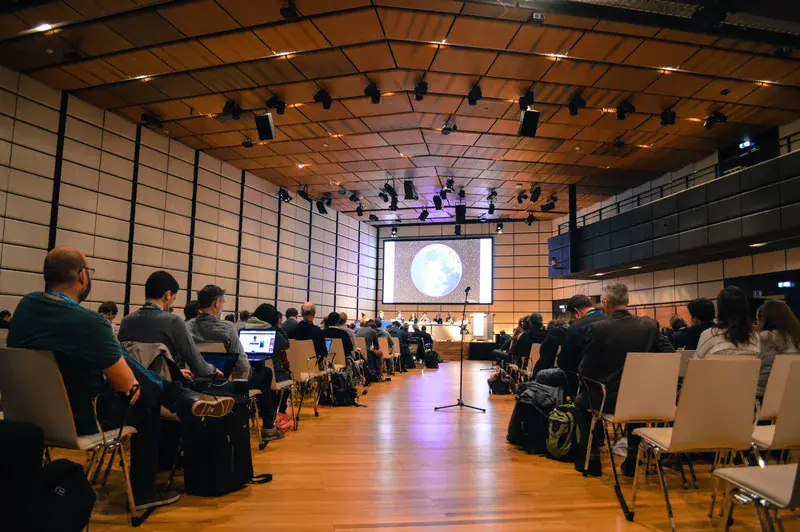
Oral presentation session in EGU (from imaggeo.egu.eu).
2. KEEP IT SIMPLE AND TO THE POINT.
Less is more. Don’t overstuff your slides with too much text or overly complex visuals. Profit from animations to introduce ideas incrementally, keeping your audience locked in. If your research is extensive, contains large datasets or relies on advance cloud computing, you can greatly benefit from EGU’s supplementary material feature.
Remember, science—especially in the GMPV division—is increasingly interdisciplinary, and it’s easy to slip into technical jargon. Your job is to keep everyone on track and ensure your message is clear and accessible. Practice explaining your research in simple terms, as if speaking to someone with a general background in geoscience but not your specific niche. Use clear language, focus on key points, and you’ll encourage more questions because people will truly understand your research!
3. BE ON TIME, PREPARE, AND PRACTICE!
Your talk lasts 8 minutes, followed by 2 minutes of Q&A. Be punctual! The session convenor will stop you if you exceed your time. Don’t end up in a situation where your 8 minutes are up while you’re still explaining a crucial figure. Avoid this by preparing and practicing in advance. Finish your talk a few days before EGU and rehearse it multiple times. It’s okay to memorize key sentences, especially the first ones, to help calm your nerves.
Melanie suggests, “I always memorize the first two sentences since I’m most nervous at the start. Knowing what to say helps me getting into the flow.” Practice in front of a mirror, or better yet, ask your peers for feedback.
For poster presentations, you don’t need to worry about timing, but you should still be ready to give a concise “elevator pitch.” Imagine your target audience at the end of a long day of talks, seeking a brief, clear introduction to your research. A strong pitch will engage them more than simply reading off your poster. Have both a short and a long pitch ready, depending on the interests of your attendees. Veronica advises: “When presenting a poster, engage with everyone who comes by! Ask if they want to hear your pitch now or later. And never hold a drink while presenting—be professional, set it aside, and give your full attention to your audience!”
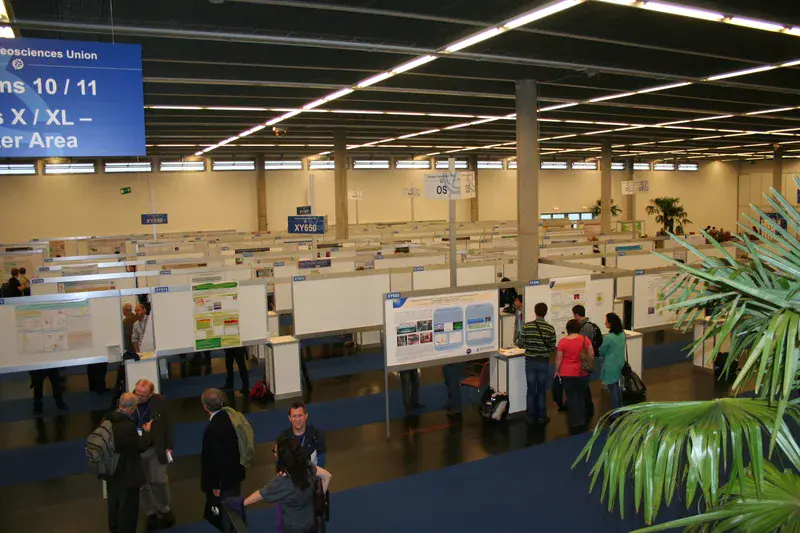
An EGU poster session (before it gets crowded, from imaggeo.egu.eu).
4. ENGAGE WITH YOUR AUDIENCE.
Presentations are about connecting with your audience, not just talking at them. If you find your research exciting, others will too. If you’re not engaging with your audience, you risk losing their attention. Make eye contact, ask rhetorical questions, and invite your audience to reflect on what you’ve shared. If you’re feeling bold, mention other talks in your session: “Thank you, XY, for introducing concept AB” or “I won’t go into that since XY’s talk is up next.” People love hearing their name.
Veronica and Metwally advise: “Read the room! Some audiences like jokes, others are more serious. Adapt to the vibe of the session.”
5. ALWAYS CONCLUDE.
Have an outro slide that restates the problem and your solution. Avoid a “Thank you for your attention” slide. Instead, leave the conclusion lingering after you finish. This will make the Q&A easier. Consider adding a relevant graph or animation to keep the focus on your main points.
6. Q&A – DEEP BREATH AND GO!
Questions are an important part of research and can offer new perspectives. Listen carefully to the audience’s questions and answer to the best of your ability. If you’re unsure of the answer, don’t be afraid to say so. You can always invite them to discuss it later or during a break. If the question seems obvious to you, consider revisiting points from advice #1 and #2 to ensure you communicated clearly.
For poster presenters, answering questions is key. When asked, try to gauge the person’s background and adjust your response accordingly. Engage with everyone who visits your poster—you never know who your OSPP judge will be.
And there you have it! 6 tips from the GMPV Division for a successful EGU presentation. Whether you’re an oral or a poster presenter, remember that you know your work better than anyone else. Good luck, and we look forward to seeing you at the EGU General Assembly in April!

